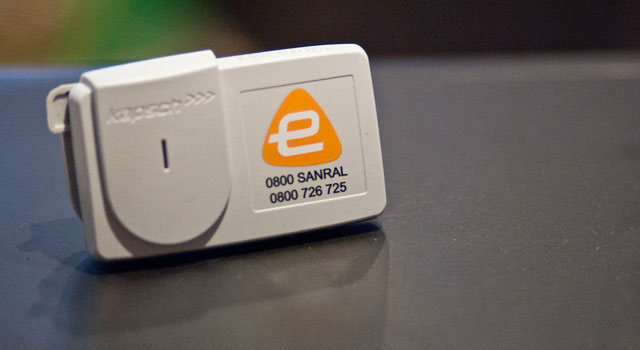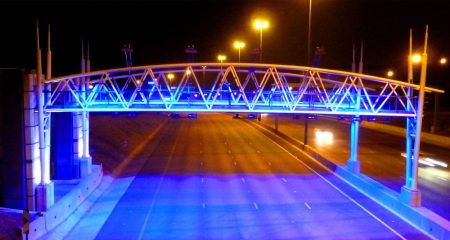
There was only one exception to the misery with which the arrival of e-tolling on Gauteng highways was greeted on Wednesday. This came from roads agency Sanral, which described the development as good news.
“We now have certainty as to when tolling on the inner Gauteng highways can begin. Sanral can now service the debt it had incurred to upgrade these vital roads,” CEO Nazir Alli said in a statement.
Others mostly bemoaned the announcement by transport minister Dipuo Peters in the morning that e-tolling would begin on 3 December.
Trade union federation Cosatu received the news “with anger”, while the Democratic Alliance said this was a sad day for Gauteng and the country.
Alli said Sanral expected a smooth start to toll collection.
“It is important to note that of the more than 700 000km of roads in the country, only 19 704 are part of the national network and thus Sanral’s responsibility.
“Of the latter, only 16% are tolled, some 3 120km. Of the tolled roads, only 201km form part of the Gauteng Freeway Improvement Project. The figures are important to keep a proper perspective,” he said.
Alli encouraged motorists to buy e-tags as it was “the right thing to do” and would qualify road users for cheaper rates.
Opposition to Urban Tolling Alliance (Outa) chairman Wayne Duvenage said the e-tolling system was doomed to fail. It was inefficient, irrational, and would enrich overseas companies at the expense of motorists.
Outa believed the most equitable way to pay for the maintenance of the highways would be through a fuel levy.
“We call on society to exercise moral courage and resist the system on the basis that there are far too many things wrong with e-tolling. The system will fail,” he said.
A legal challenge to e-tolling by Outa was dismissed by the supreme court of appeal last month. Outa announced on 18 October that it did not have money to continue the legal fight against e-tolling. Outa maintained that Sanral and government did not conduct a proper public participation process.
Cosatu spokesman Patrick Craven said the trade union federation would not give up its fight against e-tolling.
“Cosatu reaffirms its continued total opposition to this attempt to privatise our public roads and force us to pay to travel on roads we have already paid for though taxes and the fuel levy.”
He said motorists should refuse to buy e-tags, as there was “absolutely no legal obligation” to do so.
Cosatu has been a fervent opponent of e-tolling and held several “drive-slow” campaigns and marches to protest against the introduction of the tolls.
DA Gauteng premier candidate Mmusi Maimane said in a statement most Gauteng residents would eventually feel the impact of the tolls.
“Residents who are not regular road users will feel the pinch through increased food and living expenses. I encourage you to take this frustration to the ballot box next year and vote out the government that has enforced this system on an unwilling province.”
Earlier this month, the DA and the Freedom Front Plus announced they would each bring high court applications to fight the constitutionality of the e-toll bill president Jacob Zuma signed in September.
AfriForum CEO Kalli Kriel said the civil rights organisation would not register its vehicles for e-tolling. He said if enough motorists refused to register the system would become impractical, forcing Sanral to reconsider e-tolling.
“AfriForum will leave it up to every member of the public, with due consideration of the costs involved, to decide for themselves whether they want to join AfriForum in this civil protest action.”
If the public accepted e-tolls on Gauteng’s roads without protest, then government could launch similar projects without considering more cost-effective methods of paying for them.
Earlier on Wednesday, Peters said in Pretoria electronic tolling would contribute to the fight against licence plate cloning and reduce congestion.
She said government had made several concessions to minimise the financial burden on road users paying for the e-tolled road network.
“Sanral should be allowed to start collecting toll fees in order to begin to repay the debt incurred when the roads were upgraded,” she told reporters in Pretoria. “We cannot afford to continue to expose Sanral’s portfolio to any further financial risks.” — Sapa




